Dental Implants in Albania
Dental implants serve as a support for prosthetic replacements in the event of the loss of one or more teeth. They are made of titanium, a biocompatible and particularly resistant material, and are implanted in the jawbone where they perform the function of the tooth root.
Dental Implants in Albania
Natural tooth loss can be caused by various factors, such as tooth decay or various injuries, and as such it represents a discomfort, and in many cases even a real health problem. In fact, in addition to the imperfection from an aesthetic point of view, the lack of teeth causes functional problems, makes chewing, phonation difficult and can even create problems for the respiratory system.
Today, however, thanks to dental implants, patients can do a lot to improve the quality of their health. In recent times, the use of dental implants represents a huge advance in the replacement of missing teeth. Furthermore, they are extremely reliable and, if well maintained, their duration can even reach ten years.
What is a Dental Implant
The dental implant consists of two essential parts: the screw, which is fixed with a surgical intervention in the patient’s jawbone, and the abutment, which connects the screw to the structure of the prosthesis. The implant is made of titanium , a very resistant and biocompatible material.
Correct prevention is essential for the success of similar treatments. It is important to carry out regular checks of the prosthetic structure and to maintain accurate oral hygiene, even with any professional dental cleaning. This way your dentist can intervene in time and avoid major problems. This is the first step to avoid complications in the healing process or infections. Rejection phenomena are extremely rare, but problems may arise that can prevent the complete integration of the dental implant into the bone. In this case the dentist can remove the implant and replace it with a new one.
Another problem shared by owners of natural teeth and dental implants is plaque, which can still accumulate around your teeth and lead to a serious infectious process similar to periodontitis, called peri-implantitis. This occurs when the bone support around the dental implant becomes insufficient due to the accumulated plaque not removed by the dentist.
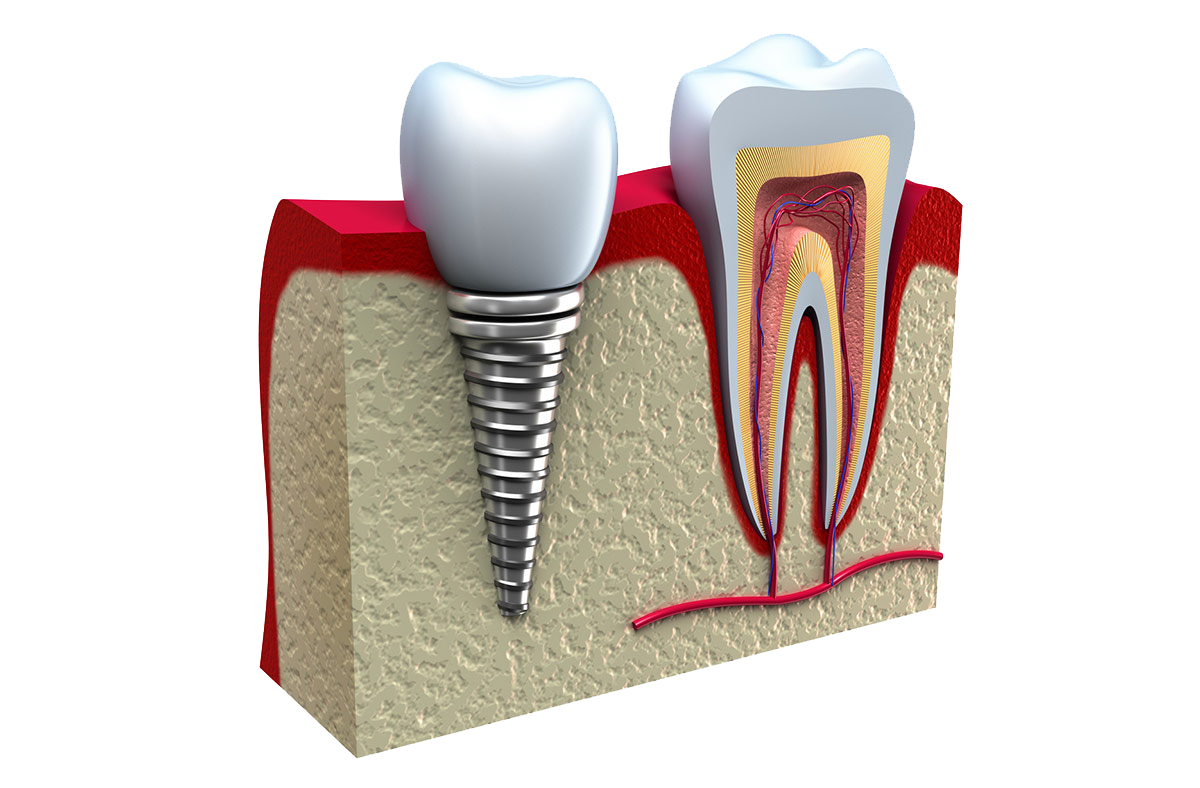
When to have a Dental Implant
Implantation is recommended in the absence of one or more teeth.
- In the loss of a tooth, because in this case it performs a protective function against neighboring teeth which otherwise would have to be filed.
- In the absence of more teeth, the dental implant acts as a support for the bridge.
- In cases of total tooth loss, a dental implant is without a doubt the best solution. Wanting to obtain a fixed solution, in these cases six to eight screws are installed in the mandible which then act as a support for the circular bridge. The other possibility is the prosthesis which is fixed to a bar which in turn is connected to two, three or four dental implants. This type of prosthesis is more stable than the common prosthesis, but with the advantage that it can be removed to carry out a more accurate oral hygiene. In the following three or six months, the integrative bone process follows, i.e. the adhesion of the implant with the bone in which it was installed.
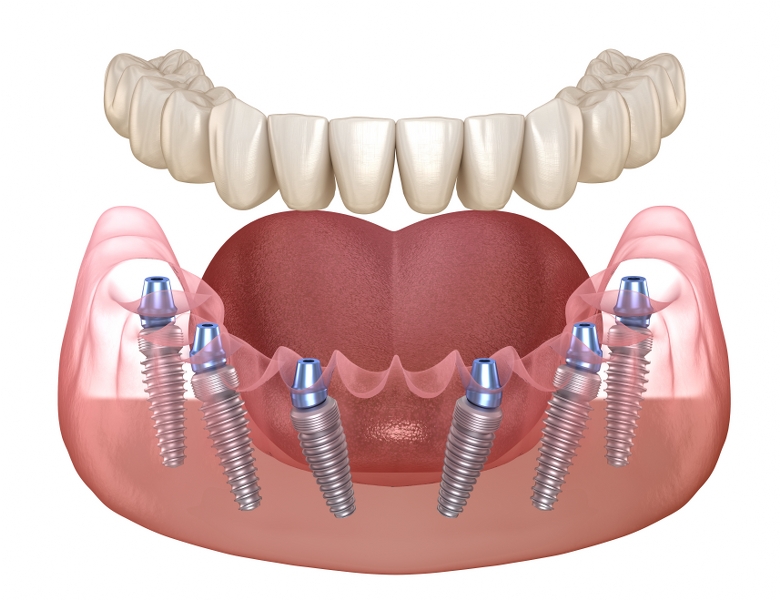
Dental Implants with little bone
It is also possible to remedy the lack of bone needed to implant the dental implant by adding missing bone using various surgical methods. It is about:
- guided bone regeration (GBR)
- sinus floor erection (Sinus l-lift)
- osteotomy techniques of implant installation
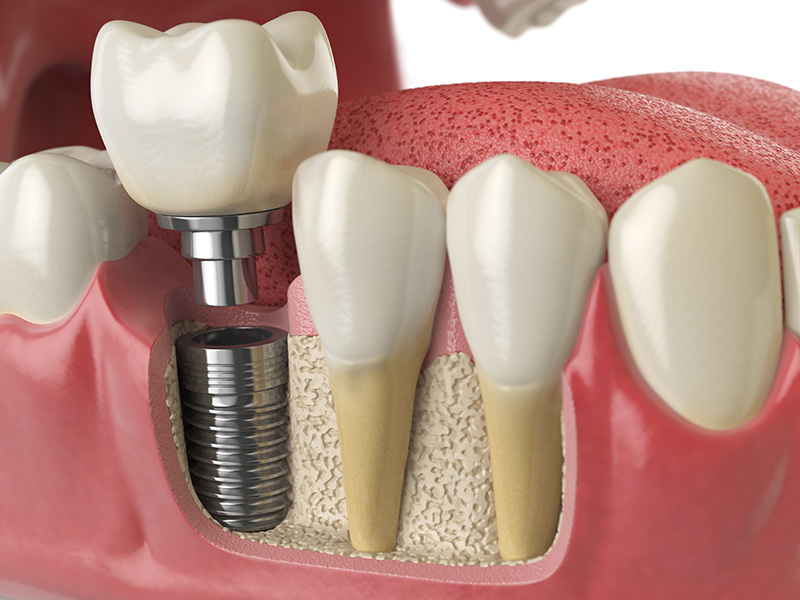
How long does a Dental Implant last
By carrying out proper oral hygiene and regularly visiting the dentist to carry out various checks and prevent any problems, dental implants can also last a lifetime. Therefore, every patient must be aware of the fact that good maintenance of the implants and of the entire oral cavity play a fundamental role in its duration.

Techniques used and duration of Dental Implants
Traditional solutions in the replacement of missing teeth, the loss of which is caused by injuries, caries or periodontitis, included in the past the installation of bridges and removable, partial or total prostheses. Today, however, more and more people are choosing more lasting solutions that modern dentistry has perfected and made available to its patients.
In fact, dental implants offer enormous advantages over the treatments of the past, thanks to cutting-edge technology and new and always better quality materials.
One of the greatest advantages is certainly the duration of the implants which reaches an average of 10 years, if the patient does not neglect oral hygiene and carries out all the necessary checks.
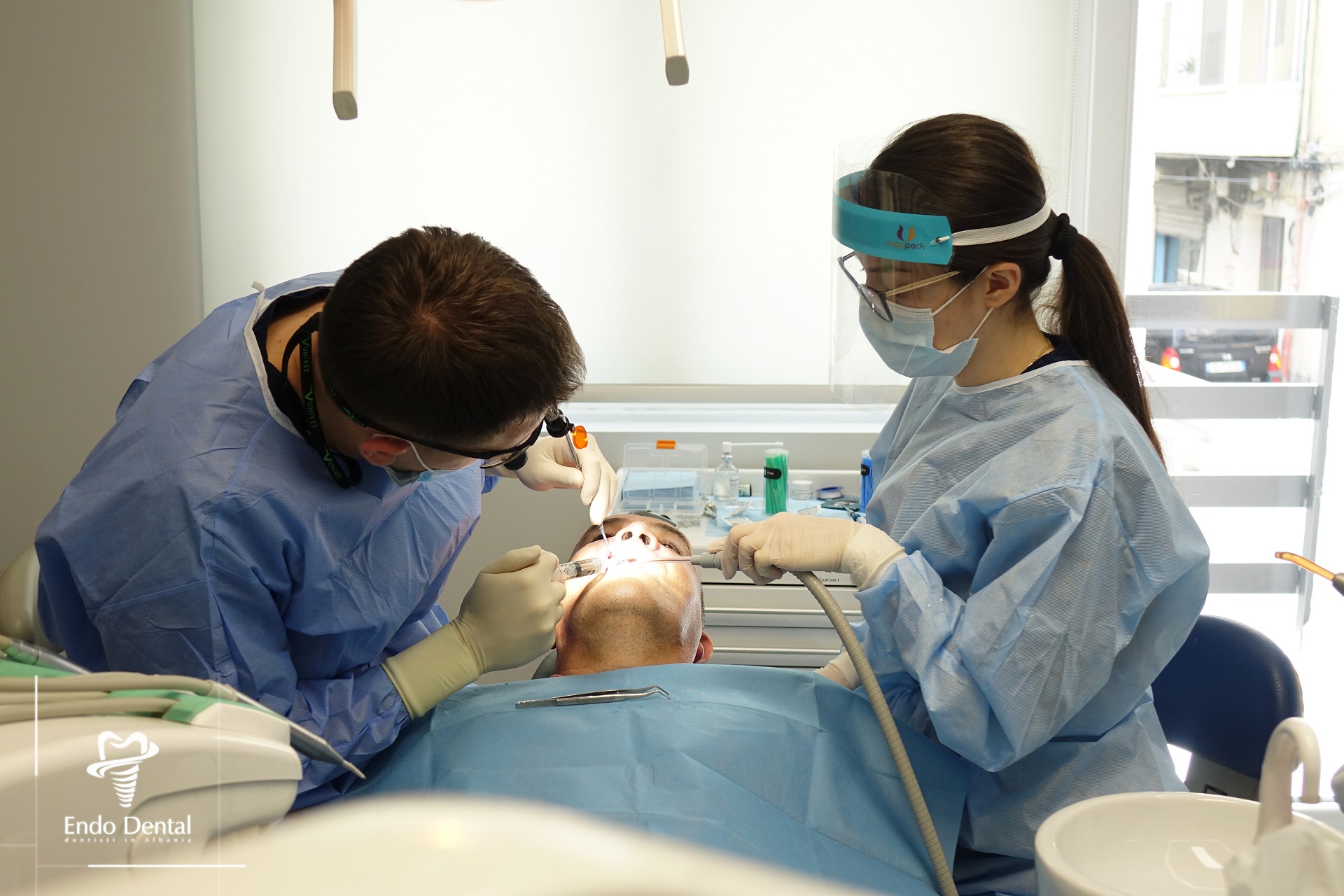
The Advantages and Disadvantages of Dental Implants
Advantages
In order to offer patients a more durable and safer solution, today implantology therapy is also used to replace only one tooth, although it is possible to solve this type of problem by inserting a fixed bridge. However, by inserting a dental implant, the root of the tooth is also replaced, and not only the visible part, i.e. in this case the implant screw acts as a support for a crown or a bridge without having to file the adjacent teeth. It is therefore clear that this is a more complete and lasting, stable and resistant intervention, which also facilitates the chewing function.
Disadvantages
It is known that every surgical intervention represents a possible risk, as well as the insertion of the dental implant.
The price of this type of treatment is higher than a traditional bridge. In addition, in some cases, costs increase if tissue preparation is also required, such as bone reconstruction or mucosal transplantation.
And finally, an important factor for everyone, and also for patients who have undergone such an operation, is poor oral hygiene that can create problems.
How is the implant treatment carried out?
Every dentist is obliged to provide all necessary information to their patient before starting therapy. In this first phase of evaluation, the doctor will carry out a thorough check-up and consult with the patient, after which the patient himself will decide whether to proceed with the intervention.
Consultations with your doctor will include the following points:
- Information on implant therapy and the real need for surgery
- Type of intervention and possible contraindications
- Consequences in case of renunciation of treatment
- Prosthetic solutions with implants
- Therapeutic alternatives

Duration and costs of Dental Implants
In order to exclude any risk factors and complications, before proceeding with the surgery, the doctor has the task of carrying out various checks and radiographs to establish and evaluate the state of the patient’s jaw bone. In extreme cases, when the therapy is at risk due to the presence of multiple problems, the doctor will be forced to give up the implant surgery. These factors are then explained in detail to the patient, and can be of various types:
- Limited scarring (resulting from poor health or other medical conditions)
- Onset of periodontal diseases (periodontitis)
- Smoking (high number of cigarettes consumed in a day)
- Insufficient oral hygiene
- Defects of bone and chewing
- Tendency to grind teeth
- Some psychic pathologies

Surgical intervention
The operation is carried out under local anesthesia, which is usually painless at an outpatient level. The first phase, lasting 30 minutes to 2 hours, begins with the incision of the gingiva to proceed with the preparation of the jaw bone, called in this case the “implant bed”. For this purpose, special surgical tips are used.
The first phase also includes the insertion of the implant, or a titanium screw. Nowadays all the best dental offices use this very resistant material and well tolerated by the body. To accelerate the healing then proceed to the seam from the mucosa.
In some cases the conditions of the maxillary bone and mucosa are not optimal and therefore, to proceed with the surgery, it is necessary to carry out operations and care to prepare the implant bed. These are additional bone reconstruction or mucosal transplant surgeries. Obviously, in such cases the patient will have to wait a few months before proceeding with the insertion of the dental implant.
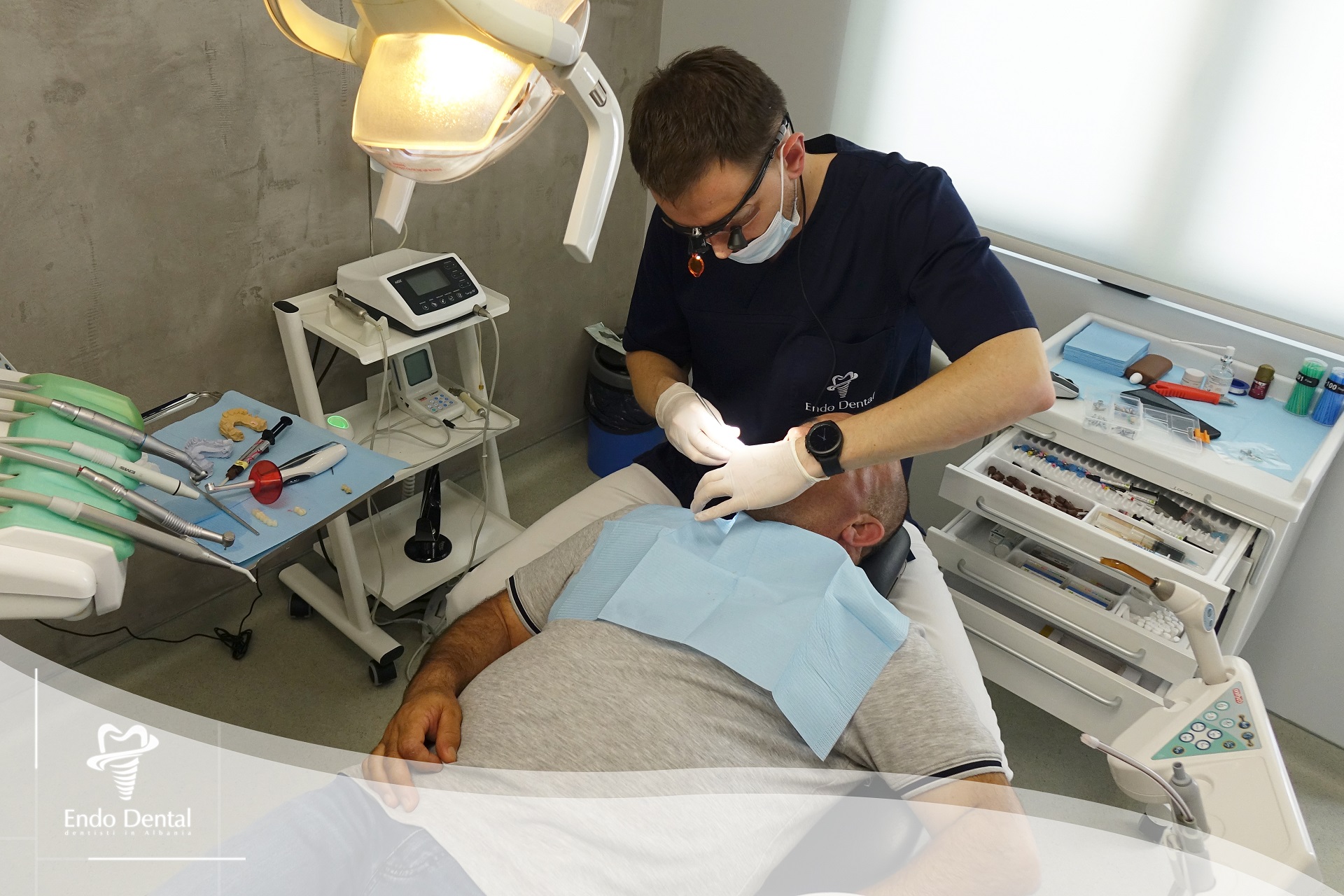
Any complications of Dental Implants
There are various types of complications that can accompany surgery of this type. The most common are: haemorrhage, swelling and hematoma, infection, transient altered sensation (paraesthesia).
To avoid various risks and complications as much as possible, our specialists carry out careful diagnostic work and scrupulous planning of the intervention before proceeding with the surgery.
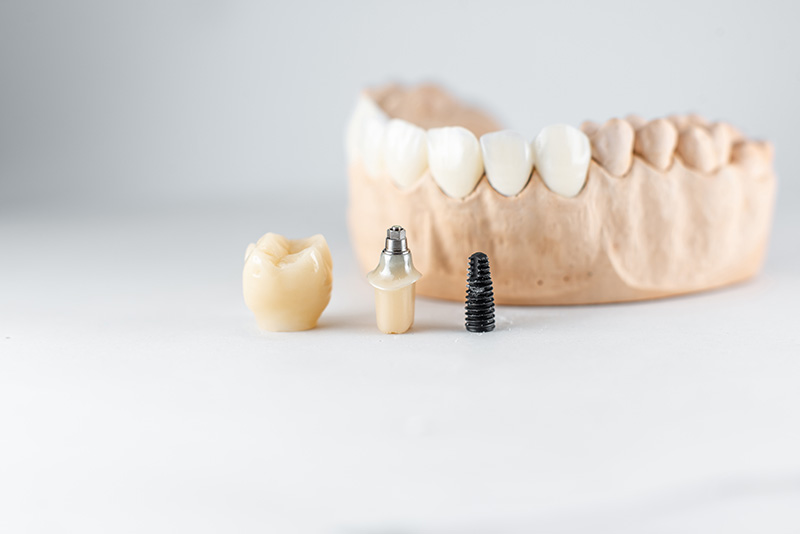
Problems with scarring
Sometimes the success of the surgery also depends on the state of the underlying bone, and it may happen that the implant does not integrate well with it. In this case, the implant is removed and a new intervention planned, naturally after a waiting period that can last from a few weeks to a few months.
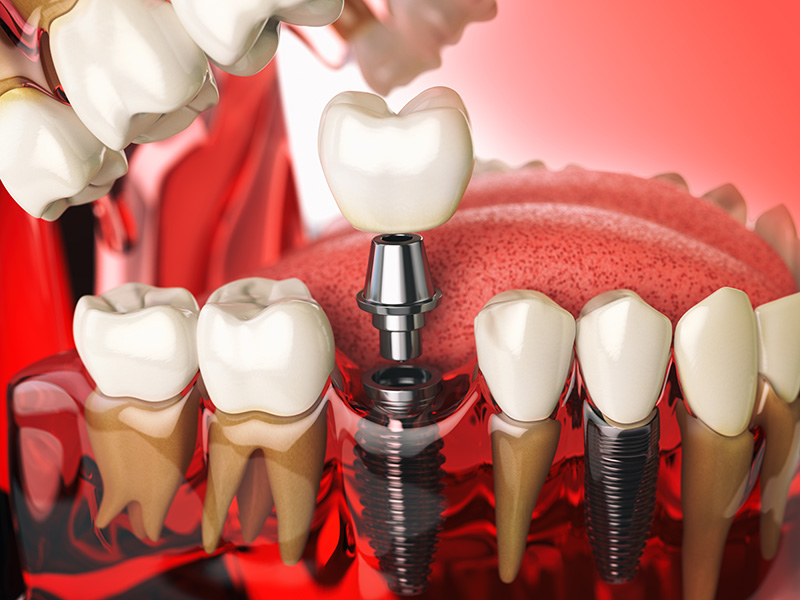
Healing phase
The duration of the definitive healing varies from patient to patient, and can be completed in a few weeks but in some cases it can last even a few months. However, after about a week the doctor checks the wound and removes the stitches, and explains to the patient the steps of proper oral hygiene. If the position of the implant is clearly visible in the mouth, during the healing period the patient receives a temporary denture that is fixed thanks to simple removable prostheses. This is not necessary if the position of the implant in the mouth is not visible.
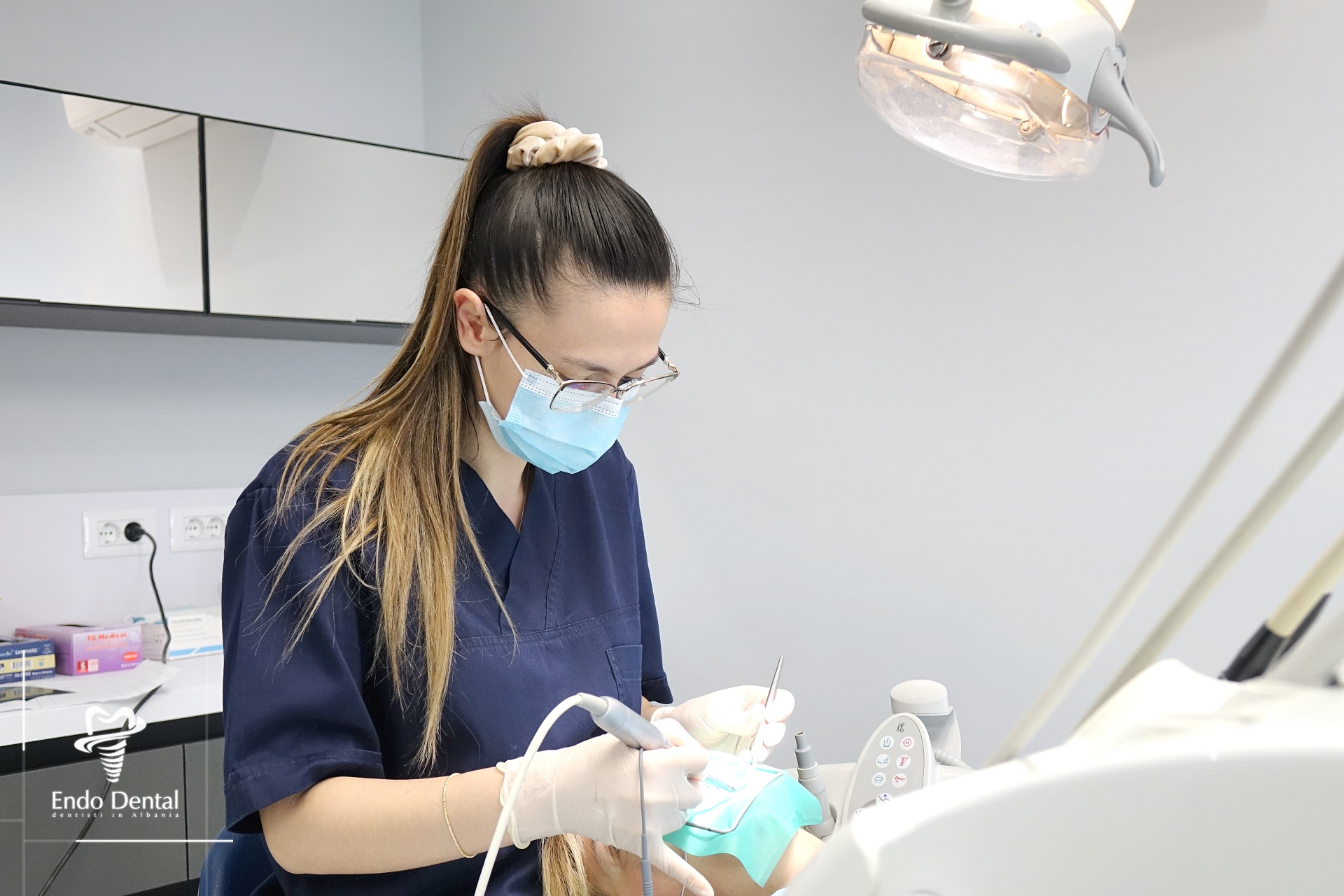
Insertion of the prosthesis
In some cases it is not enough to insert only a fixed element, but also a prosthesis. In this case, doctors must perform a series of operations: take an impression of the mouth, make the crown, bridges or prostheses in the dental laboratory, and finally fix everything to the implants. Consequently, the number of medical visits will be greater.

The cost of an implant treatment
The price of implant treatments depends in the first place on the complexity of the intervention that must be performed, or on the initial situation of your teeth.
After a thorough control visit, and after having ascertained what types of intervention will be undertaken, our experts will offer you an estimate of the cost.
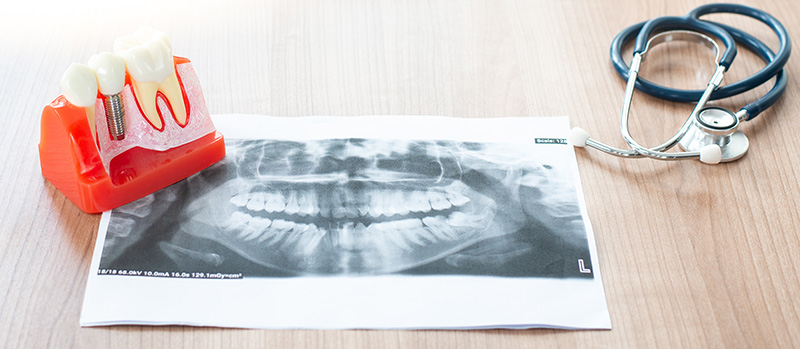
Success and duration of implant therapy
Maintenance therapy, carried out by the dentist, and careful oral hygiene that the patient must take into account, are the two main factors that determine the success and duration of implant therapy.
To treat the possible inflammations that may occur, dentists recommend at least two annual check-ups. Only in more serious cases, such as for example periodontitis, the number of medical sessions must be greater and can rise to four annual visits.

Table of Contents
REQUEST A FREE QUOTE
Fill the details correctly in the form below, and we will respond immediately
with the instructions given by our professionals doctors.
Contact Form



